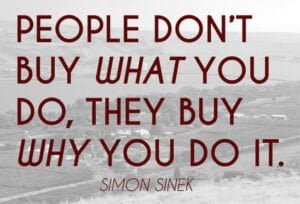A brand’s success is often determined by the way it performs in two critical areas – Ratings and Revenue. You can include other items if you wish, but most companies care first and foremost about income generated and audience growth and engagement.
One of the advantages that the sports format has is that the audience is very loyal and passionate. Most of the on-air talent is local, and because the news cycle changes minute by minute, the programming must be consumed in real time. Listeners who enjoy sports talk often read sports websites, use social media, and in some cases receive text alerts and emails from brands they trust. They do so because they want to be informed and not miss anything.
That urgency for information, and the addiction to the content/personalities is a big reason why this format thrives. But when you analyze the radio industry’s economic future, you see some troubling signs on the horizon.
Earlier this week, eMarketer released their projections for media spending through 2020. Digital was picked to become the top revenue producer by 2017, and radio was far behind television, digital, and mobile. It was placed slightly above newspapers and magazines.
Projections though aren’t guarantees so it is possible that the growth for radio will be higher. eMarketer says radio will receive 7% or less of media ad dollars between 2017-2020, and that makes me wonder, which formats will receive the majority of that 7%? If history is any indication, music stations will benefit. News/Talk will be right behind them, and that leaves sports talk in the rear view mirror.
The one problem though, is that music radio is not bulletproof and its growth is stagnant. The urgency for the content isn’t high, the personalities are often devalued, the digital offerings for many music brands lack imagination and originality, and music discovery (which was one of its biggest strengths) occurs faster on other platforms.
The biggest advantage it has currently is that the dashboard inside of vehicles puts the listener in position to have to use them. That’s where platforms like YouTube, iTunes, Spotify, Pandora, Apple Music, and Tidal run into trouble. But as the world changes and digital dashboards get introduced to provide a better user experience, that makes music radio vulnerable.
 To many in the ad buying community, these facts get overlooked. They’re not as focused on the future as they are on the present. When an agency works with a client, they direct the company’s dollars on brands who they have deep relationships with. In most cases, those brands have a track record of ratings success. By doing so, it makes it harder for the client to question their judgement.
To many in the ad buying community, these facts get overlooked. They’re not as focused on the future as they are on the present. When an agency works with a client, they direct the company’s dollars on brands who they have deep relationships with. In most cases, those brands have a track record of ratings success. By doing so, it makes it harder for the client to question their judgement.
But lost in the equation is whether or not the advertiser’s message is being heard, remembered, and acted on by the targeted audience. A buyer can show data to the client which highlights the reach of the brand and the frequency in which their message was presented but the real test is whether or not it leads to future sales, and customer loyalty.
Let’s face it, music brands perform well in the ratings in most markets, and because they do, they’re going to gain their fair share of revenue due to the way the radio business is currently measured. That’s not going to change in the next year or two. But will it still be the same in 5-10 years? That depends on who you ask.
I looked at the performance for the top revenue generating stations of 2014 and 5 of the top 10 were CHR, Lite AC and Hot AC stations. Only 1 sports talker cracked the top 10 (WFAN in New York). However, the recall of a client’s message on a music brand and sports talker isn’t even close. A music brand’s audience size may be large based on Nielsen projections, but so is the emotional detachment from the product. That doesn’t even take into consideration the client’s inability to be featured inside of the content, which is available on a sports station.
 When you look at sports talk, it’s biggest strength is that it delivers passion, and creates this feeling that people and companies are bigger than they actually are. It’s the house party taking place on your street that you really want to be invited to. When that invitation arrives in your mailbox, you not only make sure to attend, but you tell everyone you know about it because being invited makes you feel important.
When you look at sports talk, it’s biggest strength is that it delivers passion, and creates this feeling that people and companies are bigger than they actually are. It’s the house party taking place on your street that you really want to be invited to. When that invitation arrives in your mailbox, you not only make sure to attend, but you tell everyone you know about it because being invited makes you feel important.
It’s because of that feeling that clients will spend six figures to align themselves with a personality endorsement, a weekly call-in from a top local athlete, or a local franchise’s play by play. There’s a mental image that gets built inside the minds of the audience and that’s something that can’t be duplicated by most other formats. The only exception right now would be News/Talk, and that’s due to the passion involved in the election process. Let’s see if that same fire exists with people in March of 2017.
I often wonder why businesses who hire agencies to do their ad buying don’t insist more on being featured heavily on sports radio brands. Especially if they offer a product that’s attractive to Men. Walk into any business and chances are you’ll hear someone inside the workplace talking about a local sports subject. In some locations you’ll find sports memorabilia displayed on the walls, and when you press the owners and key decision makers on anything sports related, you often find that they buy tickets, watch games, and share a passion for it.
The idea that it’s a niche format to some buyers shows how out of touch they are with reality. If it wasn’t the type of content that produced strong audience engagement and consumer activity, media groups wouldn’t spend a fortune on talent and play by play rights. Sports has become the top commodity on television, social media, and digital, and it’s not slowing down, it’s only growing larger.
 If you took fifty listeners from a sports station and fifty from any other format, and put them in a room, and asked them to recite a few facts about the radio station, its talent/content and its advertisers, you won’t find stronger recall than you do with a sports talker. That awareness and connection should matter greatly to clients.
If you took fifty listeners from a sports station and fifty from any other format, and put them in a room, and asked them to recite a few facts about the radio station, its talent/content and its advertisers, you won’t find stronger recall than you do with a sports talker. That awareness and connection should matter greatly to clients.
Maybe I’m biased because this is the format I’ve spent my entire career in, but I’ve seen the results with my own eyes in multiple markets. There’s a reason television has gone to the extreme investing in the content and charging premium dollars to be associated with it. Sports has MAJOR influence and power, and an unmatched ability to deliver across all platforms for advertisers.
Why the format doesn’t receive more advertiser respect is baffling to me. If radio wants 7% to turn into 8, 9 or 10%, then it has to recognize the value of the format and insist on it getting what it deserves. It’s one of the few that must be heard LIVE and is growing in ratings, FM migration, total number of stations, and on digital and social media platforms.
 One person who shares a similar passion and has the unique perspective of dealing with listeners and advertisers in his current position is Mitch Nelles of the Big 920 in Milwaukee. When he suggested a column on the power of sports marketing and why it’s necessary for all brands, I was intrigued. I think you’ll find his column accurately addresses why sports advertising pays dividends and if you’re involved in sales I hope the message hits home.
One person who shares a similar passion and has the unique perspective of dealing with listeners and advertisers in his current position is Mitch Nelles of the Big 920 in Milwaukee. When he suggested a column on the power of sports marketing and why it’s necessary for all brands, I was intrigued. I think you’ll find his column accurately addresses why sports advertising pays dividends and if you’re involved in sales I hope the message hits home.
Why Every Brand Needs Sports Marketing
Walk down any street in Wisconsin and ask people who Aaron Rodgers is – everyone knows.
Ask them who Bo Ryan or Barry Alvarez is, and again, everyone knows.
 And odds are, not only does everyone know, but they have an opinion. And with an opinion, comes passion. And with passion… comes selling power.
And odds are, not only does everyone know, but they have an opinion. And with an opinion, comes passion. And with passion… comes selling power.
Sports have a stranglehold on the human psyche. They have a way of drawing us in and making us CARE. In this world of scripted TV shows, scripted Reality shows, and yes – scripted (at least semi-scripted) political discourse, sports is still the ONE true arena where we can see – on a nightly basis – something that has never happened before.
And sports are also the escape – the diversion from everyday life. That’s a huge reason why sports are so popular. We can approach them with an “enthusiasm unknown to mankind” and still function in our day to day lives.
And THAT’S why people listen. THAT’S why they attend sporting events, and sports-marketing related events. THAT’S why not only is the “Big February Football Game” popular, but it supports a week’s worth of events, parties, and parties in EVERY city in America.
It’s why there is HUGE money in sports sponsorships. Sports are LITERALLY the last must-see/must-listen-to-LIVE opportunity on Earth.
 When companies are looking to increase their brand awareness, sports are almost always at the center of that branding campaign. Getting your logo associated with a sports team/event/fundraiser is a great way to increase visibility and positivity.
When companies are looking to increase their brand awareness, sports are almost always at the center of that branding campaign. Getting your logo associated with a sports team/event/fundraiser is a great way to increase visibility and positivity.
At iHeartMedia Milwaukee where I work, we are the home to The Big 920 – the home of Wisconsin Badgers football and men’s basketball – easily the two most-popular collegiate sports in the state of Wisconsin.
To an advertiser, aligning their company with these brands is a (insert sports vernacular here – Touchdown! Slam dunk!). Sponsoring pregame shows, postgame shows, a weekly call-in with the play-by-play voice on a local show – all are opportunities to align a brand with the biggest collegiate sports brand in the state. And similar opportunities exist throughout the country on most local sports radio stations.
 My radio station is also home to the NCAA’s March Madness tournament in the month of March, and the primetime NFL package (Thursday night, Sunday night and Monday night football).
My radio station is also home to the NCAA’s March Madness tournament in the month of March, and the primetime NFL package (Thursday night, Sunday night and Monday night football).
Again – passion = selling power. Sports are your opportunity to connect with a loyal and ACTIVE audience in the world of radio.
Use this passion to your advantage. Use sports to your advantage. Set yourself apart by aligning your company with a sports radio station and you’ll find that passion being reciprocated by those who consume your message.

Jason Barrett is the President and Founder of Barrett Media since the company was created in September 2015. Prior to its arrival, JB served as a sports radio programmer, launching brands such as 95.7 The Game in San Francisco, and 101 ESPN in St. Louis. He also spent time programming SportsTalk 950 in Philadelphia, 590 The Fan KFNS in St. Louis, and ESPN 1340/1390 in Poughkeepsie, NY. Jason also worked on-air and behind the scenes in local radio at 101.5 WPDH, WTBQ 1110AM, and WPYX 106.5. He also spent two years on the national stage, producing radio shows for ESPN Radio in Bristol, CT. Among them included the Dan Patrick Show, and GameNight.
You can find JB on Twitter @SportsRadioPD. He’s also reachable by email at Jason@BarrettMedia.com.






